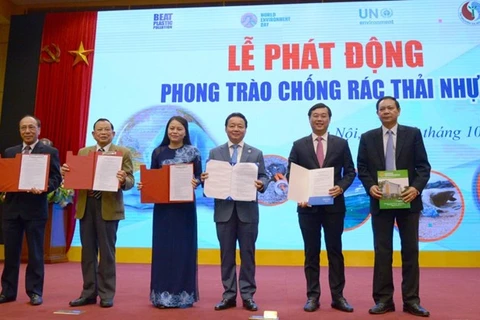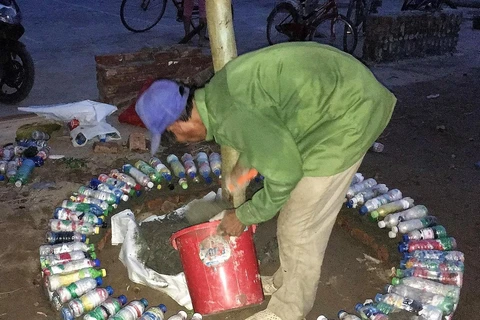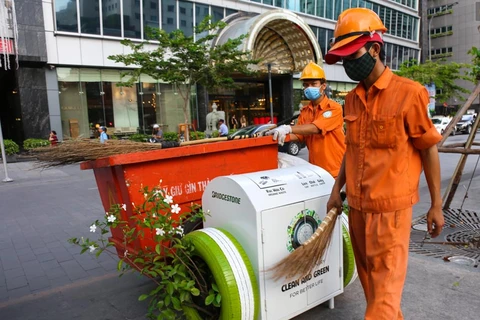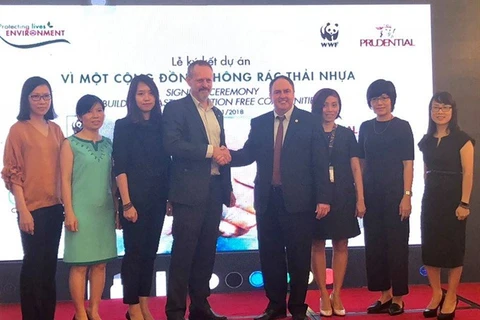 Canadian Ambassador to Vietnam Deborah Paul speaks at the workshop. (Photo: baotainguyenmoitruong.vn)
Canadian Ambassador to Vietnam Deborah Paul speaks at the workshop. (Photo: baotainguyenmoitruong.vn) Hanoi (VNA) – The first international consultation workshop on building a national action plan on marine plastic debris management was jointly held in Hanoi on December 10 by the Ministry of Natural Resources and Environment and the Canadian Embassy in Vietnam.
The event is part of the activities to mark 45th anniversary of the Vietnam-Canada diplomatic relations (1973-2018).
In his opening remark, Minister of Natural Resources and Environment Tran Hong Ha affirmed that protecting and restoring the marine eco-system have been an ultimate goal in the marine economic development strategy for 2030 with a vision to 2045.
Developing an action plan to control marine plastic debris is to realise Prime Minister Nguyen Xuan Phuc’s initiative to form a global cooperation mechanism for reducing plastic wastes towards oceans free of plastic debris at the expanded Group of Seven (G7) Summit held in Canada in June this year, he added.
Ha suggested Vietnam host the ASEAN ministerial meeting under the theme of building ASEAN community free of marine plastic debris.
Canadian Ambassador to Vietnam Deborah Paul said that her country has long-lasting collaboration with Vietnam in addressing environmental issues.
Some 8 million tonnes of plastic debris are discharged into the oceans each year, equal to the dumping of a truckload of plastic every minute, she said, adding that plastic waste, including microplastics, is threatening the health of the oceans, rivers and the mankind.
Around 90 percent of plastic products have fossil fuels in their ingredient, and recycling one tonne of plastic helps reduce two tonnes of carbon dioxide emission into the atmosphere, she added.
Thanks to the programme initiated by the Canadian Embassy in Vietnam, 58 embassies and international organisations have signed a Code of Conduct on Combating Plastic Pollution, and committed to reducing single-use plastic product, the diplomat stressed, expressing her delight as the initiative has been welcomed by the Vietnamese Government.
At the event, experts from Canada, the Republic of Korea and the World Bank shared experience in how to get rid of plastic trash, highlighting responsibility of the producers and sustainable financial mechanisms to develop an advanced waste treatment. They also provided consultations to Vietnam in how to build the national action plan in accordance with the Vietnam’s sustainable sea-based economic development strategy adopted at the 8th meeting of the 12th Central Committee of the Communist Party of Vietnam in October, 2018.-VNA
VNA
























